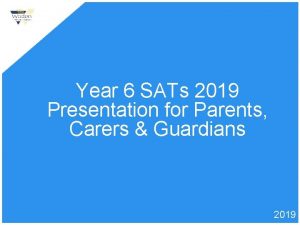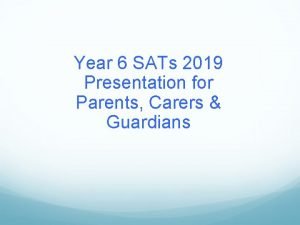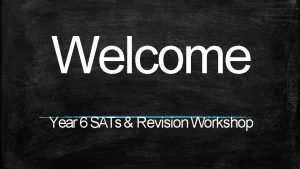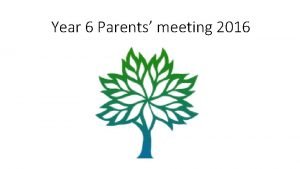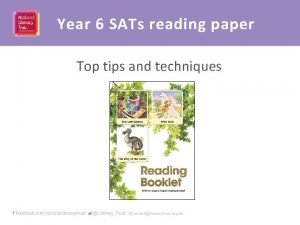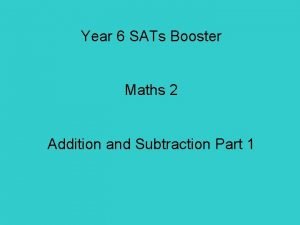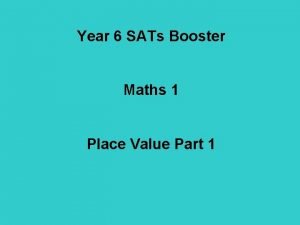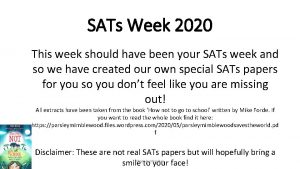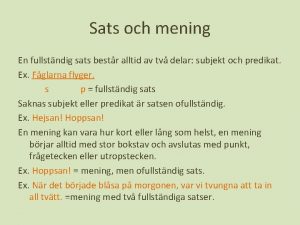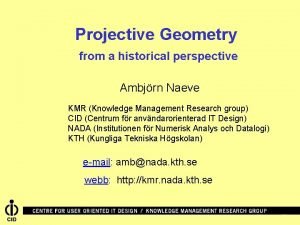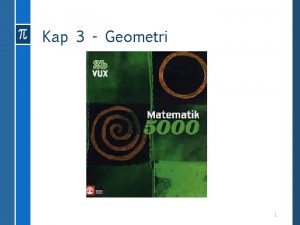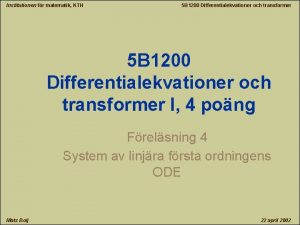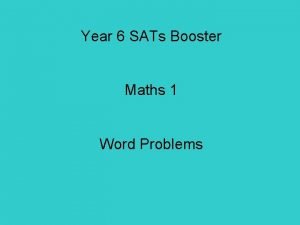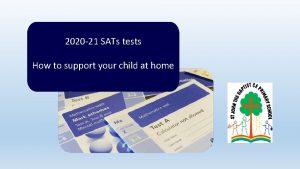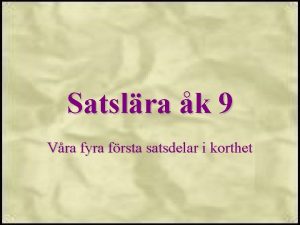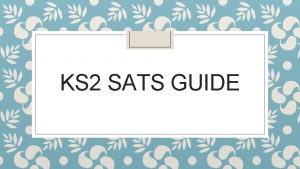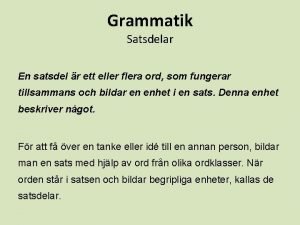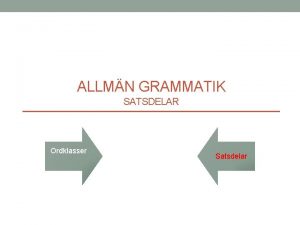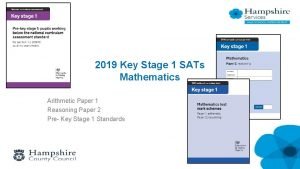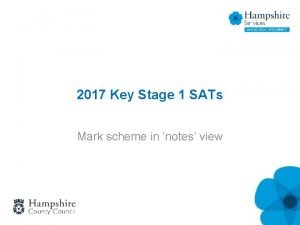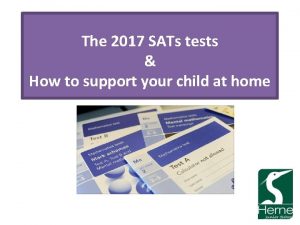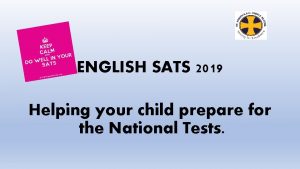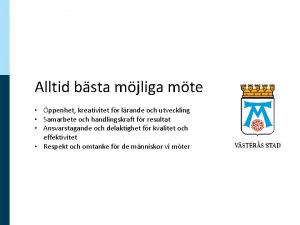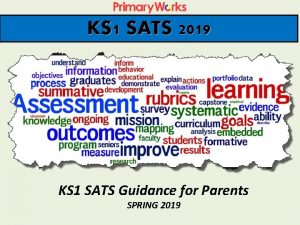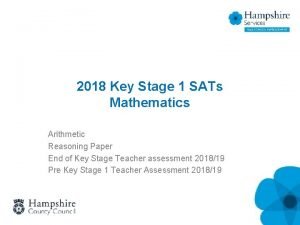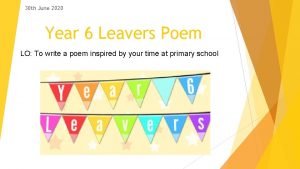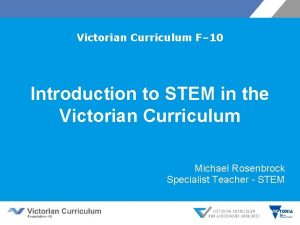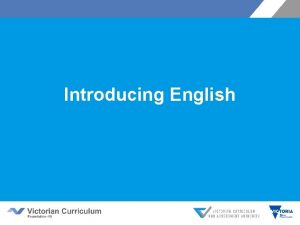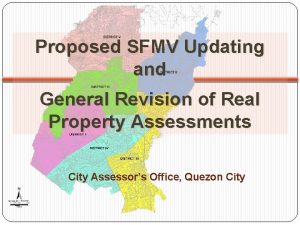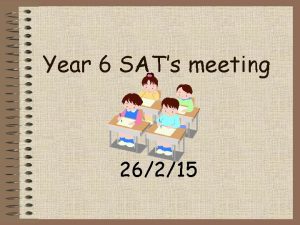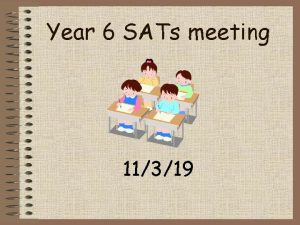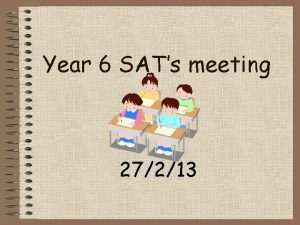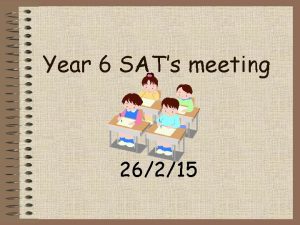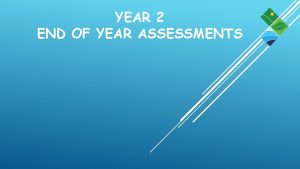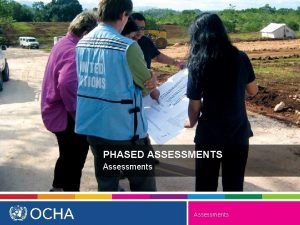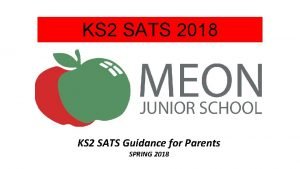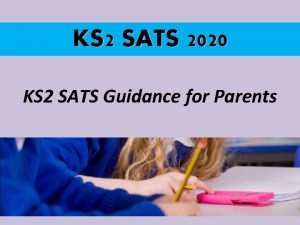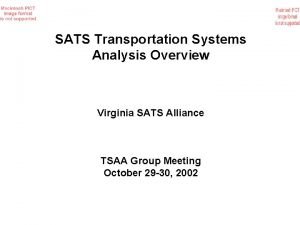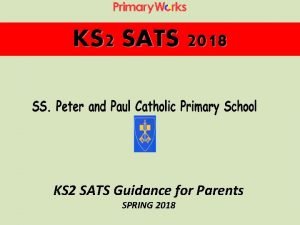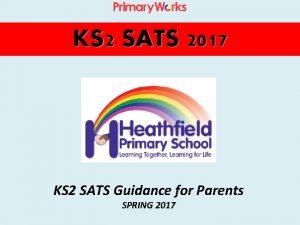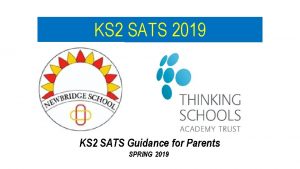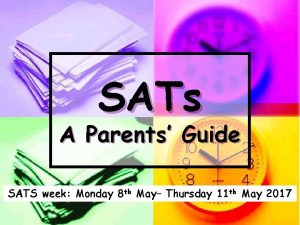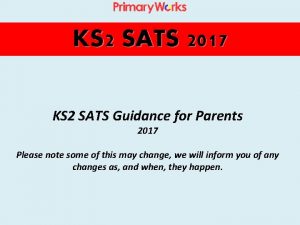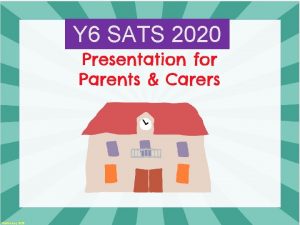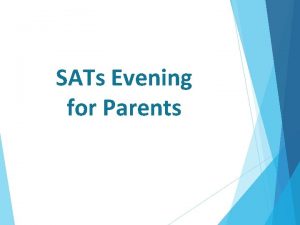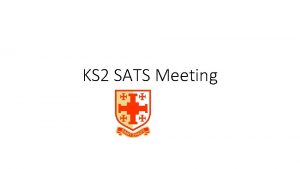Year 2 National Curriculum Assessments SATS UK National





























- Slides: 29

Year 2 National Curriculum Assessments SATS

UK National Curriculum ● Europa School is a free school. ● Bilingual education. ● European curriculum. ● UK government funded state school. ● Committed to assess standards of Year 2 children against the UK national curriculum.

The SATS Assessments ● In May 2019 Children will take assessments in Reading and Maths. ● Europa school has chosen not to administer optional Grammar, Punctuation and Spelling SAT assessment. ● Four papers over four days. ● In class just as a normal progress assessment. We don’t mention SATs at any point to children.

Assessing against UK average ● New UK curriculum in 2014. More rigorous and sets high expectations. ● “Working towards”, “working at” and “working at greater depth” according to the Year 2 expectations. ● As of 2016, test scores reported as ‘scaled scores’. 100 is national average. ● Scaled scores change every year. In previous years 100 was equivalent to: (over both papers) maths - 37/60 reading - 25/40

Reading Test Texts will cover range of poetry, fiction and non-fiction. • Paper 1 Combined reading prompt and answer booklet. Includes useful words and practice questions. 30 minutes but not strictly timed. • Paper 2 Separate reading booklet and answer booklet. No practice questions. Teachers can stop test early if pupil is struggling. 40 minutes to complete, but not strictly timed.

Reading Sample Questions Multiple Choice

Reading Sample Questions Ranking/Order

Reading Sample Questions Matching/Labels

Reading Sample Questions Short answer

Reading Sample Questions Open-ended question

Mathematics • Paper 1: Arithmetic ➢ Covers calculation methods for all operations. ➢ 20 minutes but not strictly timed. Paper 2: Reasoning ➢ Questions include multiple choice, matching, true/false, completing a chart or table or drawing a shape. ➢ Some questions will also require children to show or explain their working out. ➢ 35 minutes but not strictly timed. Includes time for 5 aural questions.

Maths Paper 1: Arithmetic

Maths Paper 2: Reasoning

Maths Paper 2: Reasoning

How to help your child • Support, praise and encourage. Trying our best is always enough. • Ensure your child has best possible attendance at school. • Support your child with homework tasks. • Reading, spelling and arithmetic (e. g. times tables) always good to practise. • Talk to your child about what they have learnt at school and what book they are reading (the character, the plot, their opinion). • Make sure your child has a good sleep and healthy breakfast every morning!

Supporting Reading ● Enjoy stories together – reading stories to your child is equally as important as listening to your child read. ● Read a little at a time but often. ● Talk about the story before, during and afterwards – discuss plot, characters, their feelings and actions, predict what will happen and encourage your child to have their own opinions. ● Look up definitions of words together. ● All reading is valuable – it doesn’t have to be just stories.

Supporting Writing • Practise and learn weekly spelling lists – make it fun. • Encourage opportunities for writing, letters, shopping lists, notes, stories or poems. • Write together – be a good role model for writing. • Identify good writing features when reading (e. g. vocabulary, sentence structure, punctuation). • Show your appreciation: praise and encourage, even for small successes.

Writing

Writing

Common Exception Words

Supporting Maths • Play times tables games for 2, 3, 5, 10 x tables. • Play counting in different amounts, forwards and backwards. • Encourage opportunities for telling the time – o’clock, half past, quarter past/to, then 5’s. • Encourage opportunities for counting coins and money. • Play ‘how many faces’ does this shape have for 3 D shapes. • Identify, weigh or measure quantities and amounts in recipes.

Addition

Multiplication

Division

Subtraction

Fractions

Reasoning ● Identify key words ● Circle them ● Draw the problem ● Work one out together – what did we learn? ● Try another one independently ● Praise good thinking


https: //spark. adobe. com/video/E 38 sox. T 4 Zvq. SC
 Year 6 sats papers 2019
Year 6 sats papers 2019 Year 6 sats 2019
Year 6 sats 2019 Sats 2019 timetable
Sats 2019 timetable Year 6 sats 2016
Year 6 sats 2016 Sats reading paper tips
Sats reading paper tips Sats booster maths
Sats booster maths Sats booster maths
Sats booster maths Sats week
Sats week Direkt objekt
Direkt objekt Steiners sats
Steiners sats Transversalsatsen
Transversalsatsen Fundamentalmatris
Fundamentalmatris Sats word problems
Sats word problems Sats tests 2020
Sats tests 2020 Ofullständig sats
Ofullständig sats What are sats
What are sats Sats grammatik
Sats grammatik Predikativ
Predikativ Ks1 sats papers 2019
Ks1 sats papers 2019 2017 sats mark scheme
2017 sats mark scheme Sats 2017 reading paper
Sats 2017 reading paper How to prepare your child for sats
How to prepare your child for sats Sats västerås
Sats västerås Primtalsfaktorer
Primtalsfaktorer 1 ks sats
1 ks sats Key stage 1 reasoning paper 2018
Key stage 1 reasoning paper 2018 Goodbye year 6 poem
Goodbye year 6 poem Victorian f-10 curriculum
Victorian f-10 curriculum Victorian curriculum eal
Victorian curriculum eal General revision of assessments and property classification
General revision of assessments and property classification
